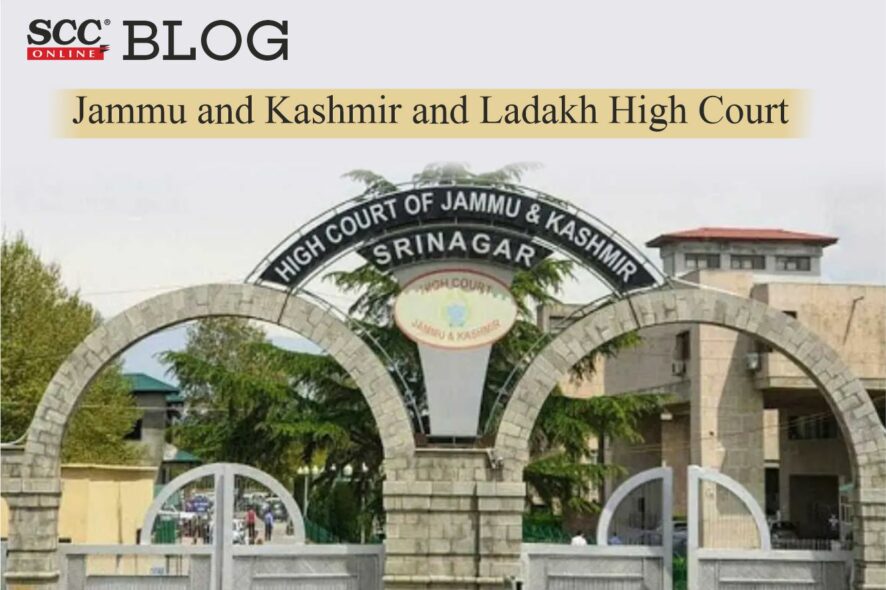Jammu and Kashmir and Ladakh High Court: While deciding the instant applications seeking to set aside the orders passed by the Special Judge (Designated Court for UAPA cases under NIA Act) Anantnag, granting bail to the respondents; the Ali Mohammad Magrey and Md. Akram Chowdhary, JJ., observed that offering of funeral prayers of a killed militant by the public at large, even if it was done at the instance of the respondents who are the elderly people of their village, cannot be construed to be anti-national activity of such a magnitude so as to deprive them of their personal liberty as guaranteed under Art. 21 of the Constitution.
Facts and Legal Trajectory of the Case: On 20.11.2021, Police Station Devsar received an information through reliable sources that Mudasir Jamal Wagay, who was an active militant, got killed during encounter with the security forces. After the news spread in the village, a person Mohammad Yousuf Ganai called forth the villagers to perform “Gaibana Namazi-Jinaza” (funeral prayers in absentia) for the slain militant.
Upon Yousouf Ganai’s call, the Imam of Masjid Sharif, Javid Ahmad Shah offered the prayers and during Jinaza the sentiments of the persons who were part of the said assembly, allegedly got incited and there were calls to continue struggle till freedom.
Based on this information, a case was registered at Police Station Devsar and the investigation was set in motion. During the investigation, ten accused persons including respondents were found involved in the case who were accordingly arrested for their involvement in the commission of offence under the provisions of Unlawful Activities (Prevention) Act, 1967.
The Special Judge of the Designated Court did not express any opinion as to the merits of the case and while keeping in mind the nature of accusations, severity of punishment, the larger mandate of Art. 21 and reformative theory of punishment, granted bail to the respondents.
Observations and Decision: Perusing the facts of the case, the Division Bench noted that the legislative policy under Section 43-D (5) of UA(P) Act is that no person accused of an offence punishable under Chapters IV and VI of the UAPA shall be released on bail, if the Court is of the opinion that there are reasonable grounds for believing that the accusation against such person is prima facie true. Both the Chapters deal with the accusation vis-a-vis terrorist activities.
The Bench referred to Union of India v. K.A. Najeeb, (2021) 3 SCC 713, wherein it was observed that unlike the NDPS where the competent Court needs to be satisfied that prima facie the accused is not guilty and that he is unlikely to commit another offence while on bail; there is no such precondition under the UAPA. Instead, Section 43-D (5) of UAPA merely provides another possible ground for the competent Court to refuse bail, in addition to the well settled considerations like gravity of the offence, possibility of tampering with evidence etc.
The Court pointed out that personal liberty is the most precious right guaranteed under the Constitution. A person is not to be deprived of his personal liberty, except in accordance with procedures established under law.
It was further observed by the Court that personal liberty may be curtailed where a person faces a criminal charge or is convicted of an offence and sentenced to imprisonment. Where a person is facing trial on a criminal charge and is temporarily deprived of his personal liberty owing to criminal charge framed against him, he has an opportunity to defend himself and to be acquitted of the charge in case prosecution fails to bring home his guilt. Where such person is convicted of offence, he still has satisfaction of having been given adequate opportunity to contest the charge and adduce evidence in his defense.
With the above-stated observations, the Division Bench noted that nothing incriminating has been found against the respondents during investigations, thus the Designated Court was right in its observations made in the impugned order granting bail to the respondent and the order does not need to be interfered with, by the High Court. “No individual can be deprived of his fundamental right of liberty guaranteed under Art. 21 of Constitution”.
[Union Territory of J&K v. Javid Ahmad Shah, 2022 SCC OnLine J&K 714, decided on 01-09-2022]
Advocates who appeared in this case :
M.A.Chashoo, AAG, Advocate, for the Appellant;
None, for the Respondents.
*Sucheta Sarkar, Editorial Assistant has prepared this brief.







